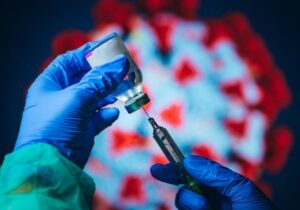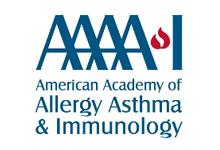There are many kinds of coronaviruses and some can cause disease. At the end of 2019, a novel coronavirus (SARS-CoV-2) was identified as the cause of pneumonia in several people in Wuhan, China. Epidemiologists determined that the virus possibly came from animals sold at a wet market. Person-to-person transmission of this virus occurs via respiratory droplets that are released into the air when an infected person coughs or sneezes. It can sometimes be spread by airborne transmission and less frequently through contact with contaminated surfaces. Spread from people to animals is rare. It began to spread rapidly throughout China and by February 2020, the World Health Organization designated the disease COVID-19, which stands for coronavirus disease 2019. By March 2020, the World Health Organization declared it to be a pandemic. COVID-19 has since affected more than 200 countries and territories around the world. There have been over 22 million cases and over 370,000 deaths in the U.S. to date. Our understanding of COVID-19 is constantly evolving, and we know more today than we knew in March 2020.
and some can cause disease. At the end of 2019, a novel coronavirus (SARS-CoV-2) was identified as the cause of pneumonia in several people in Wuhan, China. Epidemiologists determined that the virus possibly came from animals sold at a wet market. Person-to-person transmission of this virus occurs via respiratory droplets that are released into the air when an infected person coughs or sneezes. It can sometimes be spread by airborne transmission and less frequently through contact with contaminated surfaces. Spread from people to animals is rare. It began to spread rapidly throughout China and by February 2020, the World Health Organization designated the disease COVID-19, which stands for coronavirus disease 2019. By March 2020, the World Health Organization declared it to be a pandemic. COVID-19 has since affected more than 200 countries and territories around the world. There have been over 22 million cases and over 370,000 deaths in the U.S. to date. Our understanding of COVID-19 is constantly evolving, and we know more today than we knew in March 2020.
Our Commitment
Our physicians at North Texas Allergy and Asthma Center have been following the pandemic, CDC guidelines, WHO guidelines as well as U.S. and state guidelines, and are committed to doing our part to help decrease the spread of COVID-19. Vaccines to prevent COVID-19 are considered the most promising approach for curbing the pandemic and we have been closely following the recent development and distribution of the COVID-19 vaccines.
Which Vaccines Are Available? Is It safe?
In the U.S., the FDA has given emergency use authorization (EUA) for two COVID-19 vaccines:
- Pfizer-BioNTech COVID-19 vaccine on December 11, 2020
- Moderna COVID-19 vaccine on December 18, 2020
In order to receive EUA, it has to meet rigorous safety standards set by the FDA showing safety and efficacy. Over 70,000 people participated in clinical trials prior to the approval, and more than 6 million people (as of January 8th, 2021) have safely received at least one dose of a COVID-19 vaccine. Both safety and efficacy has been shown among different ages, races, genders, and also among those with underlying medical conditions.
Clinical trials for these vaccines happened quickly compared to usual and this is not only because of the need for an effective vaccine to help control the pandemic, but also because research scientists and drug companies had already learned a lot from working on other vaccines. This includes studying “mRNA” vaccines that work similarly to the ones made for COVID-19.
The Pfizer-BioNTech vaccine is a 2-dose vaccine, for 16 years and older, second dose is given 3 weeks after the first dose. The Moderna vaccine is a 2-dose vaccine, for 18 years and older, second dose is given 4 weeks after the first dose.
How Do These COVID-19 Vaccines Work?
Both the Pfizer-BioNTech and Moderna vaccines are called an “mRNA vaccine.” Researchers have been studying and working with mRNA vaccines for decades. mRNA vaccines have been studied before for flu, Zika, rabies, and cytomegalovirus (CMV). Beyond vaccines, mRNA has been used in cancer research to trigger the immune system to target specific cancer cells.
The mRNA in both vaccines is synthetic, not extracted from the actual virus. The mRNA carries instructions for the body to make a specific protein, the “spike protein”, which the virus uses to gain entry to cells. In turn, the immune system starts to make antibodies that can recognize and attack the virus if exposed in the future. Studies have shown that these vaccines are 95% effective after the second dose.
Facts About the COVID-19 Vaccines
- These vaccines DO NOT contain actual live virus
- Thus they cannot give you the COVID-19 infection
- They DO NOT make your body make the actual live virus
- They DO NOT affect or interact with our DNA in any way
- mRNA never enters the nucleus of the cell, which is where our DNA (genetic material) is kept
- The cell breaks down and gets rid of the mRNA soon after it is finished using the instructions
Can I Stop Wearing My Mask and Stop Social Distancing After the Vaccine?
The vaccine trials conducted did not look at the vaccine’s ability to prevent virus transmission. We do know the vaccine is very effective at preventing illness in those receiving the vaccine. Because there are not data demonstrating the ability of the vaccines to prevent viral transmission, it is important to continue to wear a mask and socially distance even after getting vaccinated.
Everyone will still need to wear a mask and practice social distancing until a large section of the population has developed immunity, which may not be until late 2021. Even then, more data will be needed to see how long immunity lasts. Additional rounds of immunizations may be needed.
Who Can Get It? Where Can I Get It?
Both COVID-19 vaccines have been distributed throughout the U.S. Each state has its own plan for deciding who will be vaccinated first and how they can receive vaccines.
Everyone should get vaccinated! However, in Texas, vaccine status is currently at “limited supply”. Eligibility is limited to healthcare workers, residents at long-term facilities, anyone who is 65 years or older, and those who are 16 years of age and older with at least one chronic medical condition that puts them at increased risk for severe COVID-19.
The list of chronic medical conditions is below but not limited to these:
- Cancer
- Chronic kidney disease
- COPD (Chronic Obstructive Pulmonary Disease)
- Heart conditions, such as heart failure, coronary artery disease or cardiomyopathies
- Solid organ transplantation
- Obesity and severe obesity (body mass index of 30 kg/m2 or higher)
- Pregnancy
- Sickle cell disease
- Type 2 Diabetes Mellitus
At This Time, We Currently Do Not Have COVID-19 Vaccines In Our Office
The link below to the Texas Department of State Health Services provides more information on vaccines for COVID-19 in the state of Texas. When you open the link, you will also be able to see weekly allocation of the vaccines and providers on the right-hand side.
https://dshs.state.tx.us/coronavirus/immunize/vaccine.aspx
The Texas COVID-19 Vaccine Provider Locations map can help you see if and where you might be able to get a vaccine.
https://tdem.maps.arcgis.com/apps/webappviewer/index.html?id=3700a84845c5470cb0dc3ddace5c376b
What Are the Side Effects?
Side effects can be common, particularly after the second dose. Some of the known side effects include injection site pain, tenderness, redness, fever, fatigue, and headaches. These symptoms typically resolve within a day or two and it does not mean you are sick. It is an indication that the immune system is responding to the vaccine.
Allergic Reactions to the COVID-19 Vaccines – Information Obtained From the CDC, MMWR Journal, and the American Academy of Allergy, Asthma, and Immunology
Side effects of pain, redness, fatigue, and headache can be common, but severe allergic reactions to different types of vaccinations in general are rare, occurring at a rate of 1 per one million doses.
The CDC recently published a report of severe allergic reactions to the Pfizer-BioNTech COVID-19 vaccine that happened from December 14-23, 2020. During this time period, there were a total of 1,893,360 doses given. There were 21 people that were determined to have anaphylaxis, a severe life-threatening allergic reaction. 17 out of the 21 people had a documented history of allergies or allergic reactions in the past. The majority of these reactions occurred within 15 minutes. All 21 people who experienced anaphylaxis recovered completely. The rate of anaphylaxis to the Pfizer-BioNTech COVID-19 vaccine, at this point, is estimated to be 11.1 per one million doses. These findings suggest that these types of reactions are very rare.
The exact cause of anaphylaxis is not clear; however, there is suspicion that an additive, polyethylene glycol which is found in both of the mRNA vaccines, may have triggered some of these reactions. Allergy to polyethylene glycol is very rare but has been reported in the literature in the past.
If you have had a severe allergic reaction to any ingredient in an mRNA COVID-19 vaccine, including polyethylene glycol, you should not get either of the currently available mRNA COVID-19 vaccines. If you have had a severe allergic reaction after getting the first dose of an mRNA COVID-19 vaccine, the CDC recommends that you should not get the second dose.
Polysorbate is not an ingredient in either mRNA COVID-19 vaccines but is closely related to polyethylene glycol. Thus, people who are allergic to polysorbate also should not get an mRNA COVID-19 vaccine due to the possibility of cross-reaction with polyethylene glycol.
These vaccines DO NOT contain eggs, gelatin, preservatives, or latex.
For full list of ingredients for Pfizer-BioNTech COVID-19 vaccine, click here:
https://www.fda.gov/media/144414/download
For full list of ingredients for Moderna COVID-19 vaccine, click here:
https://www.fda.gov/media/144638/download
These COVID-19 vaccines should be administered in a health care setting where all individuals can be observed for at least 15-30 minutes after the injection and anaphylactic reactions can be treated with epinephrine as first line treatment.
Overall, the risk of having a severe allergic reaction from either of the COVID-19 vaccines is very low. Evidence shows that the benefits of COVID-19 vaccination outweigh the known and potential risks.
Special Circumstances and Special Recommendations
- If you have hay fever, allergic rhinitis, food allergy, insect allergy or medication allergy, you can still get the COVID-19 vaccine, but we recommend that your vaccination be administered in a facility that can observe you for 15-30 minutes and treat any allergic reactions if necessary.
- If you have asthma, you can safely get the vaccine and should get the vaccine. Current evidence suggests that people with asthma are not at higher risk for severe COVID-19, except for those with uncontrolled or severe symptoms.
- If you are on allergy shots, biologics, or immunoglobulin replacement therapy, you may still get the COVID-19 vaccine, but not on the same day. We recommend waiting 24 hours after your allergy shot, biologic or IgG infusion before getting the COVID-19 vaccine. We also recommend waiting at least 72 hours after the COVID-19 vaccine to schedule your allergy shot, biologic or IgG infusion.
- Even if you have had COVID-19 before, it is still recommended for you to get the vaccine when you are free of symptoms and there is no active infection. Current evidence suggests that COVID-19 reinfection is uncommon in the 90 days after initial infection, so people with documented acute COVID-19 infection may delay the vaccine until the end of their 90 days if they wish.
- If you had COVID-19 and received convalescent plasma, COVID-19 vaccine would need to be delayed for 90 days.
- If you have an immunodeficiency, you can still receive the vaccine. Since none of the current available vaccines are live, there is no additional risk to immunodeficiency patients. Contact our office for further recommendations.
- If you have a known history of mast cell activation syndrome or Mastocytosis, contact our office for further recommendations.
Information is constantly evolving. mRNA COVID-19 vaccine clinical trials have just started being done with children ages 12-17. There will likely be more information available over the next several months. We will keep you updated. Please schedule a telemedicine visit with one of our board-certified allergists/immunologists at North Texas Allergy and Asthma Center if you have a history of anaphylaxis to vaccines or concerns about receiving any COVID-19 vaccine.
Sincerely,
Samuel Foster MD, Roshni Foster MD, PhD, Shikha Mane MD and B.A. Badie, MD
Board-Certified Allergists
Adult and Pediatric Allergy and Immunology







